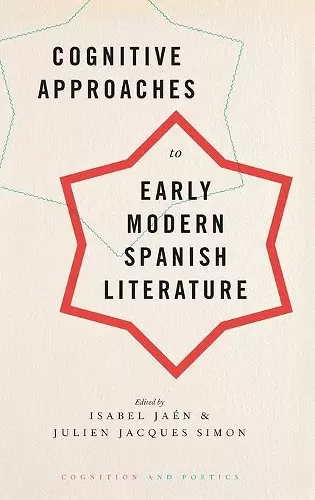Cognitive Approaches to Early Modern Spanish Literature
Isabel Jaén editor Julien Jacques Simon editor
Format:Hardback
Publisher:Oxford University Press Inc
Published:19th May '16
Currently unavailable, and unfortunately no date known when it will be back

Cognitive Approaches to Early Modern Spanish Literature is the first anthology exploring human cognition and literature in the context of early modern Spanish culture. It includes the leading voices in the field, along with the main themes and directions that this important area of study has been producing. The book begins with an overview of the cognitive literary studies research that has been taking place within early modern Spanish studies over the last fifteen years. Next, it traces the creation of self in the context of the novel, focusing on Cervantes's Don Quixote in relation to the notions of embodiment and autopoiesis as well as the faculties of memory and imagination as understood in early modernity. It continues to explore the concept of embodiment, showing its relevance to delve into the mechanics of the interaction between actors and audience both in the jongleuresque and the comedia traditions. It then centers on cognitive theories of perception, the psychology of immersion in fictional worlds, and early modern and modern-day notions of intentionality to discuss the role of perceiving and understanding others in performance, Don Quixote, and courtly conduct manuals. The last section focuses on the affective dimension of audience-performer interactions in the theatrical space of the Spanish corrales and how emotion and empathy can inform new approaches to presenting Las Casas's work in the literature classroom. The volume closes with an afterword offering strategies to design a course on mind and literature in early modernity.
The book is interesting in that the essays are quite convincing, and rather than raise questions and possible objections, at least in my mind, they open up new avenues, new opportunities for analysis, and new insights. They introduce, orient, and make viable the field of cognitive studies without the obfuscation normally associated with literary theory. They make it seem like a good idea to come on board, and make cognitive studies seem like a viable alternative for the future of literary studies, although it must be admitted that innovation and logical coherence have yet to be shown to be deciding factors in literary fashion. * Evolutionary Studies in Imaginative Culture *
ISBN: 9780190256555
Dimensions: 157mm x 239mm x 25mm
Weight: 499g
254 pages